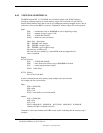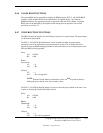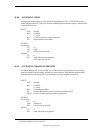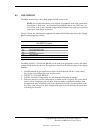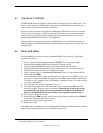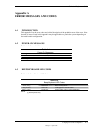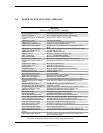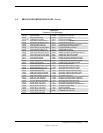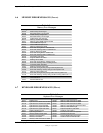
Technical Reference Guide
Compaq Deskpro EN Series of Personal Computers
Desktop and Minitower Form Factors
Third Edition - September 1998
8-21
8.6 POWER MANAGEMENT FUNCTIONS
The BIOS ROM provides three types of power management support: independent PM support;
APM support, and ACPI support.
8.6.1 INDEPENDENT PM SUPPORT
The BIOS ROM can provide power management of the system independently from any software
(OS or application) that is running on the system. In this mode the BIOS uses a timer to
determine when to switch the system to a different power state. State switching is not reported to
the OS and occurs as follows:
On
– The computer is running normally and is drawing full power.
Standby
– The computer is in a low power state. In this state the processor and chipset are still
running and the VSYNC signal to the monitor is turned off. Returning to the On state requires
very little time and will be initiated by any of the following actions:
a. key stroke
b. mouse movement
Off
– The computer is not running and drawing practically no power at all.
8.6.2 ACPI SUPPORT
This system meets the hardware and firmware requirements for being ACPI compliant. The
BIOS function INT 15 AX=E845h can be used to check or set the ACPI enable/disable status of
the system, which defaults to the “ACPI enabled” state. The setup option for ACPI should be
disabled if APM/PnP is to be used with Windows 98 or when disabling power management and
PnP support for NT5.0. A hardware redetection should be made with Windows 98 and a reinstall
of Windows NT5.0 should be performed when an ACPI switch is made.
This system supports the following ACPI functions:
♦ PM timer
♦ Power button
♦ Power button override
♦ RTC alarm
♦ Sleep/Wake logic (S1, S4 (NT), S5
♦ Legacy/ACPI select
♦ C1 state (Halt)
♦ C2 state (STOPGRANT)
♦ C3 state (no clock)
♦ PCI PME




